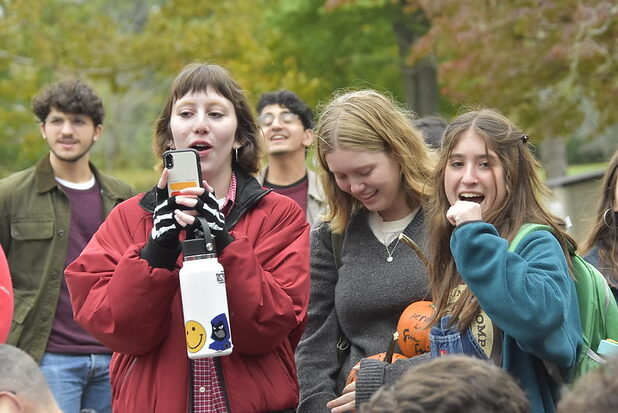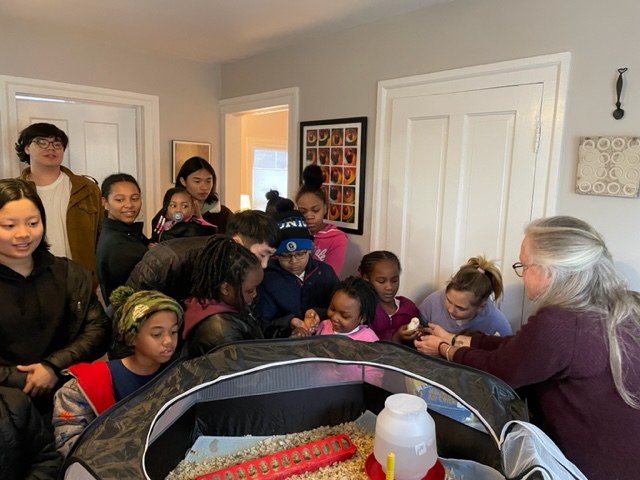
The leaves are turning, the air is crisp, and the smell of apple cider is wafting. You know what that means… time for Pumpkin Fest 2023!
Long Lane Farm is an organic student-run farm that provides healthy and fresh foods to the Middletown community and Wesleyan facilities. Long Lane’s Pumpkin Fest tradition dates back to 2004, and has a legacy of being a highlight of the Wesleyan fall semester. This year’s event, held under mostly gray skies on Saturday, October 14, was no different! Sponsored by the Bailey College of the Environment, with help from the Office of Student Involvement and Bon Appetit, and organized and hosted by Long Lane Far, the day was a massive undertaking that came to fruition perfectly! Even the afternoon rain didn’t stop hundreds and hundreds of people from flooding in and enjoying the day!

 The Robert F. Schumann Foundation has generously awarded the College of the Environment (COE) a 5-year, $2-million grant to focus on the areas of food security, environmental justice, and sustainability. The Schumann Institute of the COE will be adding new positions to enhance teaching, research, and community engagement; building a network of local community organizations that specialize in the areas of food security, environmental justice, and sustainability; providing opportunities for Wesleyan environmental studies students to work with these organizations to help their efforts; and creating a “pipeline” of professional training for graduate students, post-doctoral fellows, and professors of the practice so that they will have the skills and knowledge needed to contribute importantly when they leave Wesleyan. Enhanced courses; student immersion in community engagement projects; student internships; campus and community seminars, symposia, and workshops; scholarly output on environmental issues; and other related activities will all be supported with the grant.
The Robert F. Schumann Foundation has generously awarded the College of the Environment (COE) a 5-year, $2-million grant to focus on the areas of food security, environmental justice, and sustainability. The Schumann Institute of the COE will be adding new positions to enhance teaching, research, and community engagement; building a network of local community organizations that specialize in the areas of food security, environmental justice, and sustainability; providing opportunities for Wesleyan environmental studies students to work with these organizations to help their efforts; and creating a “pipeline” of professional training for graduate students, post-doctoral fellows, and professors of the practice so that they will have the skills and knowledge needed to contribute importantly when they leave Wesleyan. Enhanced courses; student immersion in community engagement projects; student internships; campus and community seminars, symposia, and workshops; scholarly output on environmental issues; and other related activities will all be supported with the grant. Every year, the COE awards fellowships to fund summer research opportunities for Wesleyan students across all majors and class years. Joel Rader ’23 is a film and environmental studies major who spent summer 2022 investigating how
Every year, the COE awards fellowships to fund summer research opportunities for Wesleyan students across all majors and class years. Joel Rader ’23 is a film and environmental studies major who spent summer 2022 investigating how